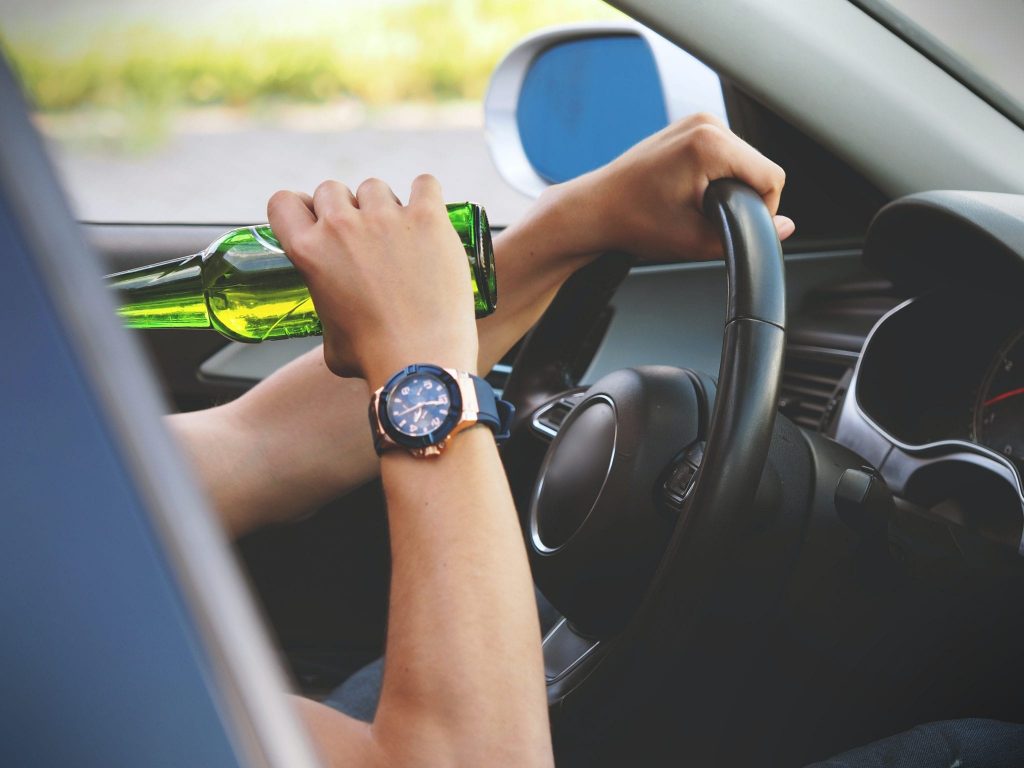
The active substance of all alcoholic beverages – ethyl alcohol – in high doses for the central nervous system is a depressant, i.e. it slows down the processes occurring in the higher nerve centers of the brain.
Ethyl alcohol is a flammable, colorless liquid with a characteristic odor; it is a potent drug that first causes excitement and then paralysis of the nervous system.
Alcohol intoxication is considering to be a blood alcohol content of 0.3 ppm and above. Such a concentration of alcohol in the blood founding in a person of the average build after:
- drink 50 ml of vodka or
- 500 ml of beer, or less.
The most dangerous changes after drinking alcohol are noting in the course of mental processes:
- Speed of receiving and processing information is sharply reducing;
- Time for assessing the situation, the time of response to signals of changes in the traffic situation, is lengthening;
- The ability to concentrate and retain attention on essential elements of the road situation is reducing by 30%;
- Nature and quality of the decisions made are distinguishing by imprecision, frivolity, risky courage, and criminal irresponsibility;
- A drunk driver makes decisions either very slowly (although they seem quick to him), or very wrong.
With a state of alcoholic intoxication, the following symptoms appear:
- Violation of coordination of movements;
- Loss of the ability to navigate around space;
- Loss of the ability to maintain balance;
- Hearing impairment;
- Weakening of attention, memory;
- Absent-mindedness;
The result of exposure to human vision manifesting in the following:
- The ability to distinguish between small details and objects on the road, as well as the color of road signs is reducing by 15%;
- The peripheral visual field is narrowing (the person does not see what is happening on the sides);
- The ability of the retina to restore sensitivity after being blinded by the headlights of an oncoming car is reducing by 30%;
- Perception of speed and distance (eye) deteriorates by 30%;
- Deteriorating color perception, especially red color discrimination;
- Twilight vision deteriorates.
The situation is further complicating by the fact that alcohol reduces a person’s ability to sober self-criticism. This is manifesting in the fact that the drunk driver sincerely believes that he drives the car better and safer than it actually happens.
In reality, when driving a car in a state of alcoholic intoxication and as a result of its consequences, the slightest complication of the road situation almost inevitably leads to an accident. According to many authors, the likelihood of an accident in a mild degree of alcoholic intoxication increases by 1,5 times.
In no case, you should think that you can safely drink up to 50 ml of vodka or 500 ml of beer. It is impossible to calculate the “safe dose” of alcohol. And it is impossible to predict what dose of alcohol in a particular person in a particular situation will cause a state of alcoholic intoxication with the above symptoms. It depends on a large number of individual physiological and situational characteristics.
Driving is, in any case, a potentially hazardous activity, attentiveness while driving can be reduced for many reasons, even in a sober driver:
- fatigue
- poor sleep the day before
- stress
- irritation
- health problems
Therefore, there is no safe dose of alcohol, including beer, for the driver. Driving and drinking in any minimum amount are incompatible!
It was about a mild state of alcoholic intoxication. With an average degree of alcoholic intoxication (1,5-2,5 ppm, 200-250 ml of vodka), the probability of an accident increases 2,5 times, and with a severe degree (more than 2,5 ppm) – in 10 times!
It should also notice that the state of a hangover after drinking the day before, even if the next morning alcohol is no longer detecting in the blood, can be no less risky and dangerous than the state of alcoholic intoxication.
In the case of post-intoxication syndrome, when the body is poisoned by the decomposition products of alcohol, the same mental functions listed above are disturbing.
Picture Credit: Pexels
